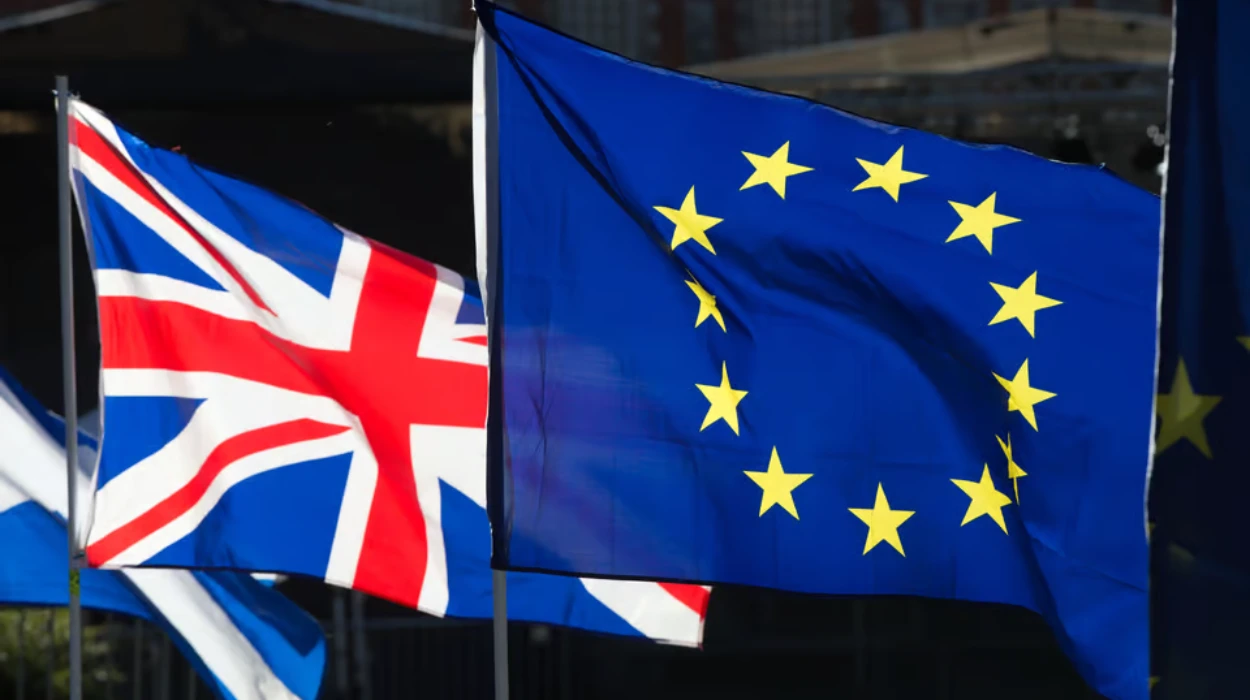Riyadh (Parliament Politics Magazine) – Chancellor Rachel Reeves says it’s not dangerous to discuss Brexit changes after the EU deal, supporting reforms to ease economic harm.
As reported by The Standard, Rachel Reeves said Labour found it politically safe to tackle Brexit’s economic harm with no political risk.
Ahead of last July’s General Election, Labour avoided Brexit talks and its economic impact, fearing backlash from Red Wall constituencies.
What did Rachel Reeves say about public reaction to the post-Brexit deal?
After the spring EU trade deal, Rachel Reeves said voters did not view it as a Brexit betrayal.
At a Riyadh business summit, Rachel Reeves was asked if Brexit signaled a push against globalisation.
At the meeting, Ms Reeves said, “Brexit was a rejection of open borders,” hinting that millions of UK households may face tax rises.
She stated,
“But if you look at the UK today when we did that deal back in May with the European Union to take down some of those barriers and indeed to introduce an ambitious youth mobility scheme, there was public support for that.”
The chancellor said,
“Actually, the worry perhaps that we had as a Government that re-opening that can of worms of our relationship with the European Union might be quite dangerous actually the response has been very good.”
Ms Reeves stated,
“For businesses, especially small businesses, who have faced increasing red tape since we left the European Union, for workers who are now locked out of the jobs market in Europe, there are obviously huge benefits from rebuilding some of those relations.”
She added,
“But also inflation is too high in countries around the world including in the UK and one of the reasons for that is there is too much cost associated with trade with our nearest neighbours and trading partners.”
Referring to upcoming tax rises, the chancellor hinted at measures to plug a £50bn gap, saying the government must maintain “sufficient headroom” to keep above spending plans to meet fiscal rules.
Asked about reports of a tax increase, Ms Reeves said she will “support working people” while finalising the Budget process.
The chancellor stated,
“The underpinning for economic growth is stability, and I’m not going to break the fiscal rules that we’ve set. We are going to reduce that primary deficit, we are going to see debt starting to fall as a share of GDP, because we need more sustainable public finances, especially in the uncertain world in which we live today.”
She said,
“So growth will be a big part of that Budget story, in a way that, frankly, I think growth has been neglected as a tool of fiscal policy in the last few years. But we are looking, of course, at tax and spending to ensure that we both have resilience against future shocks, by ensuring we’ve got sufficient headroom, and also just ensuring that those fiscal rules are adhered to.”
The chancellor pointed to Brexit and the financial crash as major reasons for the UK’s lagging productivity.
How does the UK-EU trade deal aim to boost the economy?
Prime Minister Sir Keir Starmer called the new post-Brexit trade deal “a landmark,” saying it could boost Britain’s economy by £9bn by 2040.
The deal, with some details still to be finalised, included:
- Britain’s food exports to Europe could flow faster under the deal, easing port delays, though following EU standards drew Tory criticism as a “rule taker.”
- EU nations to allow British citizens to use eGates at airports, easing queues.
- UK grants EU trawlers a 12-year deal, replacing annual negotiations.
- The deal includes a new Youth Experience Scheme, letting young Brits work in the EU and EU citizens work in the UK.
Tories and Reform UK slammed the deal, labeling it a Brexit “surrender.” However, the government insists the changes have public backing as a boost to the economy.”
The Office for Budget Responsibility says Brexit has slashed UK productivity by 4%.
When did Brexit start and end?
Brexit was the process of the United Kingdom leaving the European Union. The UK government formally triggered Article 50, starting the two-year countdown to leave the EU.
.
Britain officially left the European Union and entered a transition period on 31 January 2020.
The transition period ended on 31 December 2020, and the new relationship, based on the Trade and Cooperation Agreement, began.
Exiting the EU has reduced the UK’s GDP and cut trade with Europe. It also caused EU immigration to fall, while boosting migration from non-EU countries.


